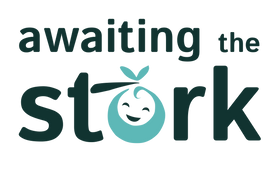GBS testing in pregnancy for a healthier baby

This article may contain affiliate links, which means we may receive a small commission, at no cost to you, if you make a purchase through the link. We only recommend products we trust and believe will be beneficial to our readers.
If you’re pregnant (congrats, mama!), chances are you’ve heard whispers about the “lovely” vaginal-rectal swab test around 36 weeks. Yup, it’s not exactly going to make your top 10 list of favorite pregnancy moments—right up there with heartburn and swollen ankles! But this GBS test is more than just a checkmark on your prenatal to-do list. Understanding why it’s done can make the whole experience feel a lot more reassuring (and maybe even a tiny bit less awkward).
What is GBS, anyway?
Group B Streptococcus (GBS), or Streptococcus agalactiae if you’re feeling fancy, is a pretty common bacterium that can live in up to 30% of healthy women’s gastrointestinal and genital tracts. For most of pregnancy, your baby is perfectly safe and snug behind the amniotic sac and bag of waters, which act like a super-strength security system. But once that protective barrier breaks—usually when your water “pops” (hopefully not in the produce aisle!)—GBS bacteria can potentially meet your baby face-to-face.
Why the fuss over GBS?
While GBS doesn’t usually affect mom’s health, it can be a sneaky troublemaker for newborns. It’s responsible for about one-third of neonatal sepsis cases (that’s a serious infection in a brand-new baby). Luckily, there’s a simple way to prevent it: If you test positive, your medical team can give you IV antibiotics during labor. This quick intervention dramatically lowers the risk of GBS-related complications, like severe infection or long-term neurological issues. In fact, most healthcare providers routinely test for GBS around 36 weeks because early detection keeps your little one safer.
The test: quick & crucial
Yes, the vaginal-rectal swab test might feel a bit, well, personal. But think of it this way: this tiny “ouch” (or more like an “eh, that’s awkward”) moment helps ensure your care team can give baby the best possible welcome. If your test is positive, treatment is straightforward and can make a big difference in preventing serious health risks for your newborn.
It’s almost “go time!”
By the time you’re taking the GBS test, you’re only about four weeks away from meeting your baby face-to-face. Think of it as a reminder that the finish line is near! This is a great time to:
-
Pack your hospital bag: Time to break out your checklist and start gathering those must-haves—comfy socks, a nursing-friendly nightgown, and maybe a trusty postpartum recovery kit. Consider adding something like the Frida Mom Hospital Packing Kit to make your stay more comfortable. It’s got essentials like disposable underwear and cooling pad liners that’ll make you feel taken care of after delivery.
-
Grab some last-minute comfort essentials: A maternity pillow like the Leachco Snoogle can still help ease those last few weeks of discomfort. And don’t forget cozy slippers—Isotoner Women’s Terry Slippers are a popular choice! Even postpartum, a soothing robe (try the Kindred Bravely Maternity & Nursing Robe) can turn those middle-of-the-night feedings into something (almost) luxurious.
-
Stay positive & connected: Consider a portable sound machine (like the Yogasleep Rohm Portable White Noise Machine) for those early nights at home. Sometimes a calming whoosh can make all the difference in helping you and baby drift off to sleep.
Reassurance is key
Remember, your care team is on top of this. They are screening for GBS not to freak you out, but to protect that precious little bundle you’ve been carefully growing for the past eight-ish months. While the test itself may feel less than glamorous, the peace of mind it provides is worth its weight in gold (or at least worth the mild inconvenience of a swab). Soon enough, you’ll be snuggling your newborn, grateful that you took all the right steps to keep them healthy and safe.
Here’s to a smooth, stress-free finish line, mama!
The content on Awaiting the Stork™ is for informational purposes only and is not intended as medical advice, diagnosis, or treatment. Always consult with a qualified physician or healthcare professional to address your unique health needs and circumstances.

